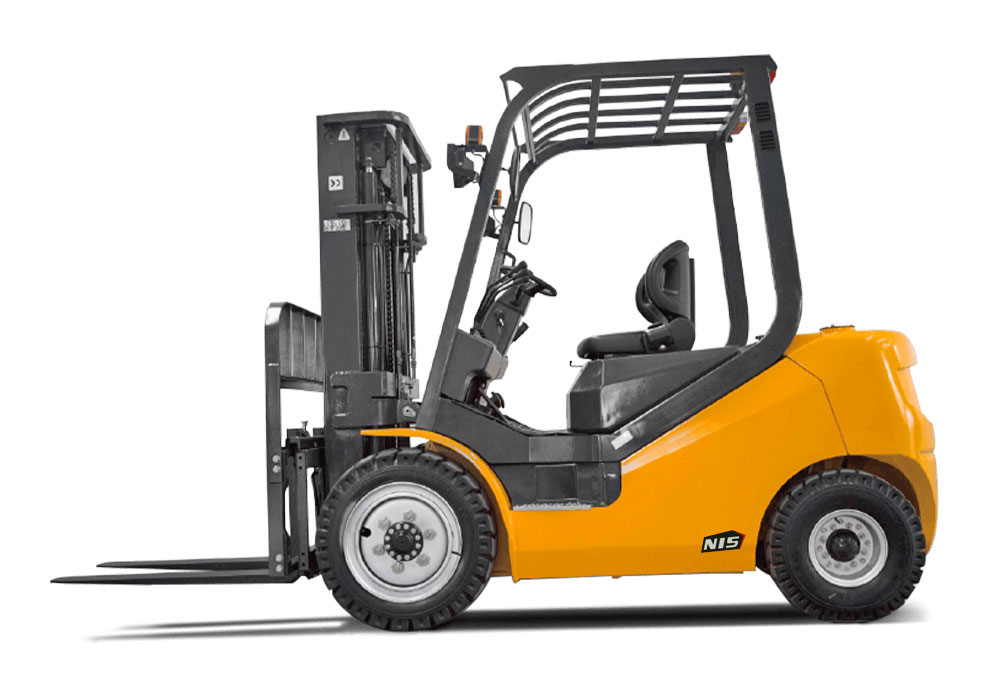In the world of material handling and logistics, forklifts play a crucial role in efficiently moving heavy loads and improving productivity. Among the various types of forklifts available, diesel forklifts have gained significant popularity due to their robustness, power, and versatility. These machines are equipped with diesel engines that provide exceptional lifting capacity and durability, making them ideal for a wide range of applications. In this article, we delve into the advantages of diesel forklifts, examining their power, versatility, fuel efficiency, and suitability for demanding industrial environments.
Impressive Power and Lifting Capacity:
Diesel forklifts are known for their impressive power and high lifting capacity. The diesel engines fitted in these forklifts generate substantial torque, enabling them to lift and transport heavy loads with ease. Whether it's stacking pallets, loading and unloading containers, or handling bulky materials, diesel forklifts offer the strength and lifting capacity necessary to tackle demanding tasks. Their robust construction and powerful performance make them well-suited for applications in warehouses, manufacturing plants, construction sites, and other industrial settings.
Versatility in Various Environments:
Diesel forklifts are designed to operate efficiently in diverse environments. They are capable of maneuvering both indoors and outdoors, making them suitable for a wide range of applications. Whether it's navigating through narrow aisles in a warehouse or working in rough terrains outdoors, diesel forklifts offer the versatility required to adapt to different working conditions. Their ability to handle various surfaces, including concrete, gravel, and uneven terrain, makes them a reliable choice for industries that require flexibility in material handling operations.
Fuel Efficiency and Cost Effectiveness:
Despite their powerful performance, diesel forklifts are renowned for their fuel efficiency and cost effectiveness. Diesel engines are known for their high energy density, which translates to longer operating hours and reduced fuel consumption compared to other types of forklifts. This fuel efficiency not only helps to lower operational costs but also minimizes the frequency of refueling, allowing for extended run times and increased productivity. Additionally, the availability and relatively lower cost of diesel fuel compared to alternative fuel sources make diesel forklifts a cost-effective choice for many businesses.
Durability and Reliability:
Diesel forklifts are built to withstand demanding working conditions and provide long-term reliability. The robust construction and heavy-duty components ensure their durability and ability to handle rigorous material handling tasks. Diesel engines are known for their longevity and ability to withstand heavy usage, making them a reliable power source for extended periods of operation. With proper maintenance and servicing, diesel forklifts can deliver consistent performance, reducing downtime and enhancing overall operational efficiency.
Easy Maintenance and Serviceability:
Diesel forklifts offer the advantage of easy maintenance and serviceability. Diesel engines are known for their simplicity and ease of maintenance, with routine servicing involving basic procedures such as oil and filter changes. Additionally, diesel engines tend to have longer service intervals compared to other types of engines, reducing maintenance downtime and costs. The availability of diesel engine parts and widespread familiarity with diesel technology also contribute to the ease of maintenance and repair of diesel forklifts.
N Series 1.5T-1.8TDiesel Forklift











 中文简体
中文简体 عربى
عربى Español
Español















